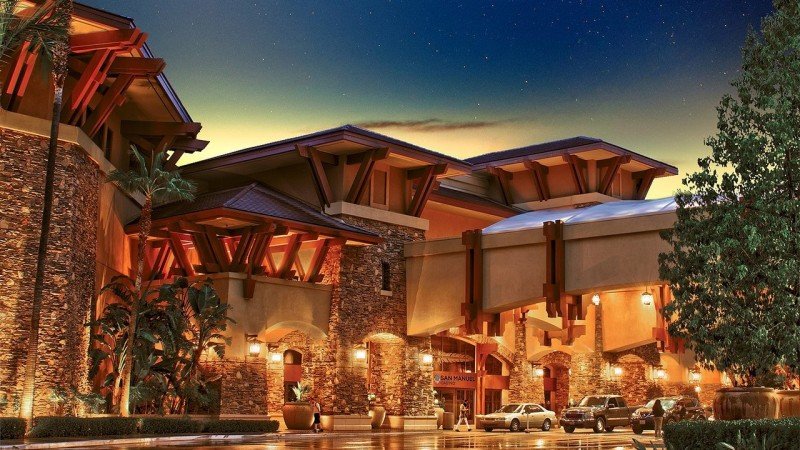California's tribal sports betting initiative cleared for 2022 ballot

An initiative that would allow California tribal casinos to offer sports betting became eligible for the November 2022 ballot Thursday, after more than 1 million signatures were verified by county election officials across the state.
Californians will vote on whether sports betting should be legalized as a proposition to amend the state Constitution to allow betting at tribal casinos and horse-racing tracks. The measure to legalize, regulate and tax sports betting is backed by a coalition of 18 tribes, who spent $11.57 million to collect 1.4 million signatures by the October 2020 deadline. This week, 1,061,282 signatures from registered voters were verified — only 997,139 valid signatures were required for the initiative to move forward.
The measure would also let federally recognized tribes in California operate roulette and dice games on tribal lands, as long as tribal-state gaming compacts are negotiated with the governor and approved by the state legislature.
It will be certified as qualified for the ballot on June 30, 2022, the California Secretary of State's office said, unless it is withdrawn by proponents before then. The amendment is billed as a means of curtailing black market illegal gambling operations “to allow adults the choice to participate in this activity with strong consumer protections,” Courthouse News Service reports.
The amendment will levy a 10% tax on gross gaming revenues from sports betting at racetracks to fund gambling prevention and mental health programs, the initiative says.
It will permit sports wagering only in-person by those aged 21 and older at tribal casinos and state-licensed racetracks. Privately operated horse-racing tracks in Alameda, Los Angeles, Orange and San Diego counties would be allowed to offer onsite sports wagering, starting in 2022. Wagering on dog-racing will still be illegal, and the measure prohibits betting on high school and California college sports, though wagers on popular events like the NCAA tournament and all other professional, out-of-state college or amateur sporting events will be permitted.
Top donors include the Pechanga Band of Luiseno Indians in Riverside, the Yocha Dehe Wintun Nation near Sacramento and the Federated Indians of Graton Rancheria in Sonoma County. Pechanga and Yocha gave $2 million each, and Graton gave $1.7 million.
“We are grateful to the more than one million Californians who signed petitions to authorize sports wagering in a well-regulated and responsible manner,” Pechanga chairman Mark Macarro said in a statement. “This is an important step toward giving Californians the opportunity to participate in sports wagering while also establishing safeguards and protections against underage gambling.”
The Legislative Analysts’ Office said it’s hard to estimate how much money legal sports betting could generate, but predicted that it “could reach the tens of millions of dollars annually.”
The measure also faces fierce opposition from cardrooms and non-tribal casinos shut out of the lucrative market. Dozens have banded together to form a campaign committee called “No on the Gambling Power Grab,” raising roughly $1 million last year with top contributions of $155,000 each from Bicycle Casino in Bell Gardens, Hollywood Park Casino, Parkwest Casinos, and Hawaiian Gardens Casino.
In a statement, California Gaming Association President Kyle Kirkland criticized the initiative as an expansion of the sponsoring tribes’ “untaxed monopoly on gaming” in California.
“The same tribal casino operators who kept casinos, restaurants and bars open while 62,000 Californians lost their lives and other California businesses suffered are behind the so-called ‘sports betting initiative,”’ Kirkland said. “This initiative will not legalize sports wagering in California. Instead, it expands the tribal casino operators’ untaxed monopoly on gaming without benefit to Californians and prioritizes tribal casino operators’ wealth over the needs of California communities and public health.”
















